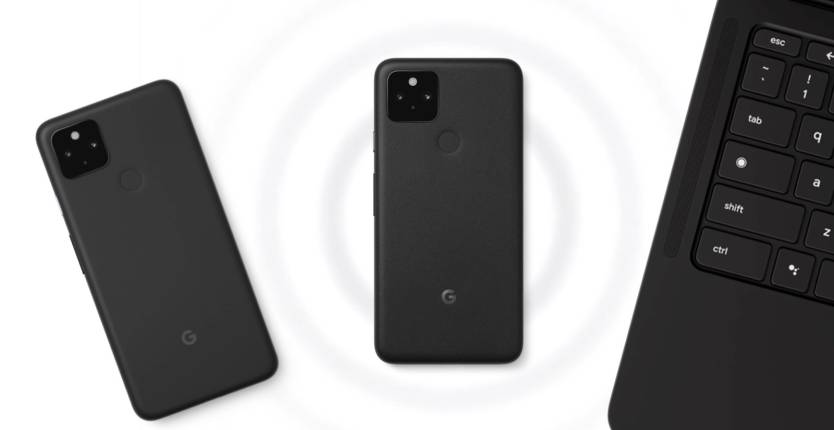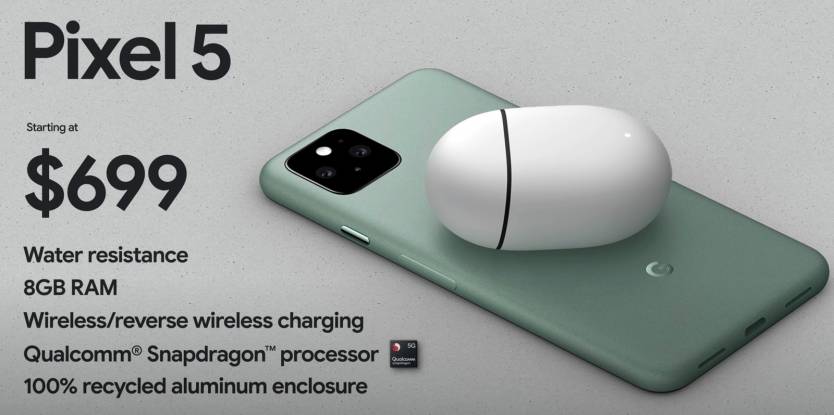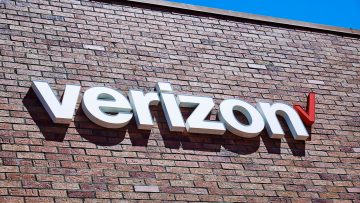- Google launched the Pixel 5 and Pixel 4a 5G phones during its hardware event on Wednesday, confirming all the rumors that said the 2020 Pixel flagship wouldn’t be a true flagship this year.
- The $499 Pixel 4a 5G is a much better choice than the $699 Pixel 5, as the two devices practically share the same set of specs, with very few differences that matter.
- There are plenty of better smartphones that sell for the same $699 or are significantly cheaper than the Pixel 5.
I told you all year long that Pixel 5 rumors suggest the phone will be the biggest disappointment in Nexus and Pixel history, and Google confirmed it all on stage during its 2020 “Made by Google” press event that streamed online on Wednesday. Google went out of its way during the press event to avoid confirming the worst thing about the two Pixel 5 phones, focusing on 5G connectivity and camera improvements. It’s not like 5G is as widely available as Google made it look like. So those camera improvements, combined with the promise of fast Android updates for the next three years, should be the only reason to get an expensive Pixel this year. And the Pixel 5 is too costly at $699, but I’ll get to that later. The worst thing about the new phones is the Snapdragon 765 processor that Google referred to as “Qualcomm Snapdragon processor” on stage. It’s the first sign that Google isn’t even trying to compete with other Android vendors this year, or Apple. And it’s unclear whether things will change anytime soon, or Google is giving up on the Pixel completely.
A chorus of Android blogs would tell you that it’s excellent news the Pixel 5 comes with a cheaper Snapdragon 765 processor on board. That Google did things differently this year. That it allows Google to sell affordable 5G phones to the masses. That’s a valid argument, but then what’s the point of the Pixel 4a 5G? If anyone’s going to compromise on hardware when buying a new phone during the novel coronavirus pandemic, then they should look at the Pixel 4a 5G.
The $499 phons is $200 cheaper than the Pixel 5 but rocks almost the same specs. It’s got a slightly bigger screen and footprint, likely to accommodate the 3.5mm headphone jack — yes, this one has a headphone jack. The Pixel 4a 5G features a plastic back instead of aluminum-and-bio-resin, 6GB of RAM instead of 8GB, and a slightly smaller battery — again, you can probably blame that 3.5mm port for that. And that large screen does not support a 90Hz refresh rate, but it’s just another feature you can forget about on an otherwise decent offering. Otherwise, the Pixel 4a 5G is the affordable Pixel 5 that you can easily explain away as the compromise some Android buyers need right now.
The Pixel 5 isn’t a significant upgrade compared to last year’s Pixel 4, and that’s something that won’t go unnoticed. Just wait for the benchmarks and speed tests to arrive. The Pixel 5 isn’t much faster than the Pixel 4, and it’ll be so much slower than the iPhone 12, iPhone 11, and probably iPhone XS. Now, imagine all the backlash had Apple pulled this move.

Google could have made a top of the line Pixel 5 to show the world that it can compete against the Galaxy S20 or Note 20, OnePlus 8 Pro, and the iPhone 12. It would have been an expensive phone that few people would have purchased. But Google doesn’t really plan to sell a boatload of Pixel 5 phones anyway.
A report Nikkei Asia said the other day that Google would produce less than 1 million Pixel 5 phones this year. The figure is actually at around 800,000 units. Combined, the initial production of Pixel 5, Pixel 4a 5G, and Pixel 4a will sit at a “modest 3 million units” for the year.
Google said that during the event that the Pixel 4a is selling even better than the Pixel 3a did. But if these estimates are genuine, then the Pixel 3a didn’t sell that well either. In the first half of the year, Google sold just 1.5 million Pixels, “a sharp drop from the 4.1 million units” sold during the same period last year, Nikkei says. The Pixel 3a did launch in the first half of the year in 2019, while its successor saw significant delays on account of the novel coronavirus pandemic.
“Google gave a relatively conservative order forecast this year because its flagship Pixel 4 did not sell well last year, and because COVID-19 is causing their team to stay on the safe side concerning handsets for now,” a source close to Google told Nikkei. The same source said the production volume is subject to adjustment depending on sales.
In an ideal universe, Google would not even need to make its smartphones as long as Android is the dominant platform. But the mistakes Google made early in the development of Android forced it to make its own smartphones. In an effort to catch on to iPhone and grab market share at all costs, Google allowed others to interfere with the operating system, losing control over updates. That’s why the Android universe has been so fragmented, a problem Google has tried to fix for years while selling it as an advantage. Fragmentation allows customization, Google would often say. But having smartphone makers and carriers involved in the release of Android updates is one of the worst things about the operating system.
That’s why Google has to have its own hardware on hand every year, to demo the best new features in a timely manner. Without a Nexus or Pixel phone handy, Google would find itself launching a new version of Android in late summer, only to have that version of Android reach existing phones several months later. This would give Apple an even bigger competitive advantage over Android. Those iOS updates are usually compatible with the vast majority of devices in use, a point Apple makes every year.

Google is rumored to replace Android with Fuchsia, an OS that will run on a variety of devices, and which will support fast updates just like iOS. That’s the word on the street, however. In such a case, Google could drop the Pixel line altogether, as it won’t need a vessel to promote the newest operating system. But even in such a case, Google will still have to produce the first device ever to run Fuchsia.
For now, Google doesn’t need just great software updates to compete with the iPhone, but also great hardware. A top of the line Pixel 5 would be the ideal purchase for hardcore Android fans who want Google’s own version of Android. It doesn’t have to sell well either. It has to exist to inspire buyers, developers, and Android vendors. But Google didn’t even attempt to make one this year.
The newly launched $699 Galaxy S20 FE is an S20 featuring several compromises of its own, but a much better deal than the Pixel 5. Like the S20 FE, the OnePlus 8 also features a Snapdragon 865 processor and sells for $599 right now. The OnePlus 8T upgrade is coming soon with an 865+ on board. The $399 iPhone SE and $699 iPhone 11 both rock the same powerful A13 Bionic chip. Come the iPhone 12 launch in a couple of weeks, the iPhone 11 will probably drop to $599, which is a much better deal than this year’s Pixels. And if you can get your hands on the €399 OnePlus Nord that rocks the same Snapdragon 765 chip as the Pixel 5 and Pixel 4a 5G, then you should ignore the Pixel altogether.
Google, of course, knows all of this. This isn’t the first year Google is making its own smartphones. Yet Google practically gave up on the Pixel series this year. Hopefully, things will turn things around next year. Google is rumored to work on a custom processor for its phones that might power the Pixel 6. In such a case, it won’t depend on Qualcomm when it comes to the CPU that powers its handsets and tablets.







